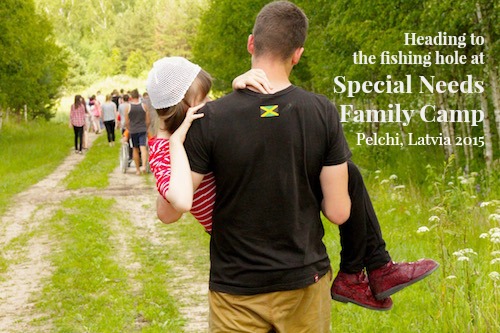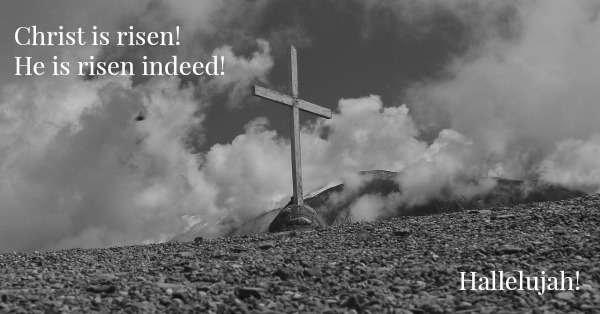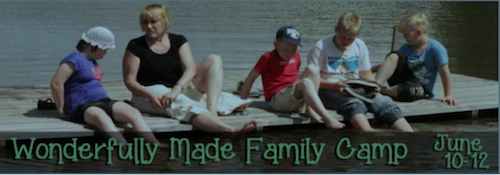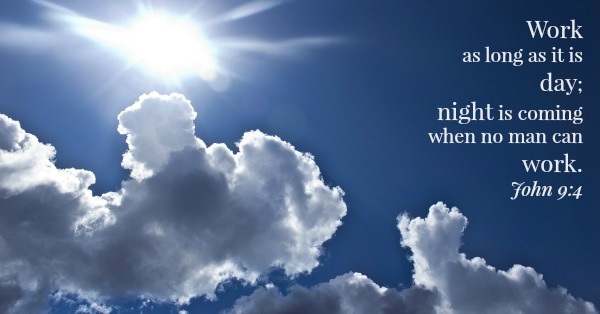
by jphilo | May 2, 2016 | Church Newsletter Columns
 I have received full payment, and more.
I have received full payment, and more.
I am well supplied, having received from Epaphroditus the gifts you sent,
a fragrant offering, a sacrifice acceptable and pleasing to God.
And my God will supply every need of yours
according to his riches in glory in Christ Jesus.
Philippians 4:18–19
For too many years, I have kept a safe distance of approximately 2,000 years between myself and Paul’s words in Philippians 4:18–19. Well, sure, I thought after reading Paul’s ringing endorsement of God’s faithfulness, those words applied to Paul. In the first century. In the early days of the church. To migrant missionaries and fragile congregations filled with frail believers.
That’s what I told myself. But what I believed deep down and refused to admit was this: while God supplied the needs of early Christians, their fledgling churches, and the itinerant missionaries who served them according to his riches and for his glory, his provision didn’t apply to me. Because in modern day America, God gives faithful believers good jobs, infuses them with a strong work ethic, and expects to meet their own needs.
I was okay with that line of thinking. It worked for me. Until about a year ago when God plunked two mission opportunities in my path: a trip to Latvia to minister to special needs moms, and joining the planning committee for a free special needs family camp at Hidden Acres. The Latvia trip would cost about $1,500. The camp needed $15,000 for family scholarships and 100 volunteers, as well as $50,000 worth of concrete for sidewalks and $4,000 for a pool lift.
No matter how hard my family and every member of the camp planning committee worked, the tasks were impossible. And yet, over the past few months, God has supplied everything needed.
- $1,608 dollars for the Latvia trip thanks to our Connection Group’s fundraiser and the amazing generosity of our church family.
- A $25,000 donation that somehow stretched until all $50,000 worth of concrete was poured at Hidden Acres.
- The entire cost of the pool lift covered by one donor.
- $10,800 raised for scholarships already and 6 weeks left for God to move hearts to supply the rest.
- 30 completed volunteer applications and promises from dozens of people that theirs will be in by the May 15 deadline.
I now read Philippians 4 differently. I know it applies not only to Paul and the early church, but also to me and to you. To our church and to all God’s churches in this day and age. God is waiting to prove to us what he proved to Paul over 2,000 years ago. He fulfills his promise to supply all our needs when we step out in faith to do what is impossible for us to do in our own power. Only then will we learn that what was true for Paul is true for us also. We can do all things through God who strengthens us. (Philippians 4:13)

by jphilo | Mar 28, 2016 | Church Newsletter Columns

Jesus said to her, “Woman, why are you weeping? Whom are you seeking?”
Supposing him to be the gardener, she said to him,
“Sir, if you have carried him away,
tell me where you have laid him, and I will take him away.”
John 20:15–16
I tore off the wrapping paper and couldn’t believe what my parents had picked out for my ninth birthday present. It was a book of fun crafts for kids. The cover consisted of shiny and blocks of bright blue and red, each block showcasing a perfectly executed craft project. Inside were illustrations and step-by-step directions for all 100 projects in the book.
The book enraptured me. I spent days reading through the projects and settled upon a miniature village made of milk cartons covered with paper, on which were drawn shingles, brickwork, and dainty windows. I gathered supplies for weeks and finally sat down to create a masterpiece all by myself. But the project was too hard. An hour later I gave up without having completed so much as a single building. The book went on the bookshelf and stayed there until Mom gave it to me years later when she moved to a new house. Paging through it with adult eyes, I could see the projects were too complicated for a child to complete alone. These were projects designed for families to complete together.
Whenever I read Mary’s words to Jesus (though she didn’t know it was him when she said them), that childhood gift comes to mind. She says, “Tell me where you have laid him,” referring to the body of Jesus which is not in the tomb, “and I will take him away.” Notice that she doesn’t say, “I’ll get help, and we’ll take him away.” No, she says, “I will take him away.”
Jesus, in all his grace, doesn’t respond with, “Really, Mary? You think you can move a dead body by yourself?” Instead he calls her by name. “Mary.”
Instantly, she knows her risen Savior. Immediately, she obeys his command to go back to her spiritual family and tell them, “I have seen the Lord.”
This Easter, many in our church body feel as hopeless as Mary did when she first discovered the empty tomb. For some reason, God in his perfect wisdom and timing, brought us face-to-face with a work of healing and forgiveness during Passion Week.
Though God provided us with an instruction book, complete with step-by-step instructions, the job to be done is far too big for any one of us to accomplish individually. Even when we study the directions together, pray together for strength and wisdom, and do the heavy lifting as one, this task is too big for us.
It will only be completed when we seek to hear Jesus speak by his Spirit into our devastation, grief, and sadness. When we instantly recognize his word and immediately obey his will even when we don’t understand it. When, like Mary, we cling to Jesus when hope beyond imagination appears. When, though we don’t understand how God can possibly bring beauty from the ashes of our ruined expectations and broken hearts, we boldly proclaim the glory of our risen Savior to a hurting world. When we trust his resurrection power and forgiveness to shine in and through us in the dark days ahead and praise him for the good and unseen things yet to come.
Christ is risen!
He is risen indeed!

by jphilo | Feb 29, 2016 | Church Newsletter Columns
 Now we who are strong ought to bear the weaknesses of those without strength
Now we who are strong ought to bear the weaknesses of those without strength
and not just please ourselves.
Each of us is to please his neighbor for his good, to his edification.
Romans 15:1–2
Dad was 40 when he attended his first Easter Seals Camp. That was in the late 1960s, but I will never forget when we picked him up at the end of a week at camp. He was grinning ear-to-ear. Behind the grin was an excitement and energy he rarely displayed after being diagnosed with MS.
He talked non-stop on the trip home. “I had my own counselor all day long. We even had a dance, and I wheeled the night away.” His children were most impressed by the announcement that he went swimming daily. He patiently answered our questions about what he wore (swimming trunks) how he got into the pool (someone wheeled him down a ramp) and how it felt to swim for the first time in over a decade. His answer to that question still brings me to tears.
“In the water, it didn’t matter that my legs don’t work. I could paddle with my hands and move around like everyone else. It was like I could still walk.”
A week at camp was more than a week of fun for Dad. It was a week of freedom. Not just freedom of movement. Freedom from stares as he wheeled around. Freedom from pity or condescension. A freedom he cherished for the rest of his life.
June 10–12, Hidden Acres is hosting its first Wonderfully Made Family Camp (WMFC) for 30 families of kids with special needs. It’s designed to minister not only to kids, but also to their families. During the day, each child with special needs will be accompanied by a one-on-one volunteer to meals, recreational activities, crafts, and programs. Their siblings will be treated to their own adventures. Moms will enjoy a spa experience Saturday afternoon while dads participate in a golf outing and a pool tournament. Saturday evening, the parents will enjoy a formal dinner and live jazz. Throughout the weekend, the hope of the gospel will be shared in word and deed.
The planning committee wants the weekend to be free of charge to families and volunteers, which means $15,000 needs to be raised. To reach that goal, your help is needed. The camp costs approximately $385 per family and a volunteer to accompany their child. This brochure explains bow to sponsor a family or make a donation.
As much as dollars, WMFC needs people with medical experience (like doctors, nurses, and EMTs), as well as adults with special needs experience (like therapists, teachers, and para-professionals) to serve as one-on-one volunteers to kids. Other people are needed to help with crafts, activities, and to serve as go-fers. All volunteers will receive training during the day on Friday before the camp begins. Volunteer applications can be accessed here.
Long ago, Paul commanded believers in Italy to bear the weaknesses of those without strength. WMFC provides an opportunity for people with strong bodies, hearts, and faith to bear the weaknesses of others by sharing the compassion of Christ in practical and life-changing ways. I can’t think of a better way to spend the weekend of June 10–12. Can you?

by jphilo | Feb 1, 2016 | Church Newsletter Columns
 We must work the works of Him who sent Me as long as it is day;
We must work the works of Him who sent Me as long as it is day;
night is coming when no one can work.
While I am in the world, I am the Light of the world.
John 9:4–5
Hiram and I are back from visiting family in Arizona. The weather was perfect, and knowing we’d escaped the sub-zero temperatures in Iowa made it feel even better. Part way through the week, my sister and I road-tripped to southern California to visit an elderly relative. I’ll spare you the description of our barefoot walk on a sunny beach in January the morning after we arrived, and skip straight to Muriel, the elderly relative.
She’s 87, sharp as a tack, and an amateur historian who has researched and compiled the story of her grandfather (my great-great-grandfather) during the Civil War. But, her sight is failing rapidly, as is her stamina and mobility. All three of us knew this might be our last visit together, so our hugs were extra long and hard when we said good-bye. Muriel was still waving when our car turned the corner. Leaving her was hard, but she is a woman of deep faith, not afraid of walking through the door from this life into the next.
The Monday after Hiram and I returned to cold and snowy Iowa, an email arrived from a friend in a nearby town. She’s also a writer, and I thought she was confirming the let’s-talk-about-writing coffee date we’d scheduled. Instead, this active, fit mom of three boys (ages 8–13) wrote to cancel because she had just been diagnosed with cancer. She and her husband hoped to know more after meeting with the doctor later in the week. Her note ended with these words. “We’re trying to just do the normal life things, and trust that God knows what he’s doing. I don’t doubt him. I really don’t. I don’t like what he’s doing, but I don’t doubt him.”
The tears that never came while saying good-bye to Muriel fell hard and fast after hearing from my young, talented, and very dear friend. My heart broke for her husband, for her sons, for the fight she faces, and for the words she will not be writing during her treatment. Even though my friend and I are certain of the glory waiting for her if she loses her fight, I am praying she will live to see her boys become men and husbands and fathers, and to experience the joy of being a grandma before she walks through that door.
Like Muriel and my young friend, I don’t doubt what God is doing. I know that though his thoughts are not my thoughts and his ways are not my ways, he can be trusted. I know we pay more attention to God’s voice when health fails and life grows short. We better understand his truths when we realize our days on this earth are numbered. The work he has for us to do on this side of death’s door will end.
When death draws near for those we love, we finally comprehend the truth God whispers into the ears of all his children. “Work as long as it is day. Night is coming when no man can work.” As we cry out to him in our grief and through our tears, we realize that our time on earth is precious and finite. And we redouble our efforts and redeem the time by doing his work with passion and purpose. Until the day he calls each of us to walk through the door of this world into the next.

by jphilo | Jan 4, 2016 | Church Newsletter Columns
 “Joseph, son of David, do not fear to take Mary as your wife,
“Joseph, son of David, do not fear to take Mary as your wife,
for that which is conceived in her is from the Holy Spirit.
She will bear a son, and you shall call his name Jesus,
for he will save his people from their sins.”
Matthew 1: 20–21
A few weeks ago, we celebrated an early Christmas with our grandkids: a 3-year-old boy, an 11-month-old girl, and an 8-month-old boy. As you can imagine, the celebration was loud. And lively. By the end of the festivities, the grandparents were begging for naps. Not so the wee ones. They vigorously objected to the prospect with all their hearts. Their parents needed every ounce of cunning and endurance, along with every lullaby in their repertoires, until the grands fell under the Sandman’s spell.
Without their parents’ concern for their welfare and safety, our beautiful grandchildren were clueless. On their own, they couldn’t choose what was good for them. They were completely vulnerable. Totally dependent on the kindness and compassion of the adults who love them.
As I watched, a thought popped into my head. “God, what were you thinking when you sent the Savior of the world–the One appointed to save us from our sins–to earth as a baby who’s life depends upon the goodness of a teen mom and a reluctant dad?”
Scripture clearly states that this was God’s plan. More than once, the Bible says that the baby born to Mary was the Savior. On the other hand, God’s Word doesn’t explicitly explain why He made such a plan.
However, the New Testament showcases vulnerable people. Jesus’ ministry is a veritable hit parade of vulnerability: children, the poor, lepers, widows, the blind, the lame, the disfigured, the mentally ill, the disenfranchised, the oppressed, the elderly, the dying.
The Savior of the world never condemned the vulnerable people he encountered. He never looked down on them. Instead, he healed them. He loved them. In John 9:1–3, Jesus announced that vulnerability is not an accident. Rather, it is part of the Father’s sovereign plan.
As he passed by, he saw a man blind from birth. And his disciples asked him,
“Rabbi, who sinned, this man or his parents, that he was born blind?”
Jesus answered, “It was not that this man sinned, or his parents,
but that the works of God might be displayed in him.” John 9:1–3
With those word, God spoke value and purpose into the life of every person, even the most compromised. Those words are a call for us to affirm the value of every life. God calls us to be like Mary and Joseph. To get our hands dirty, even when affirming life is difficult. God’s call may look different for each of us. One person may counsel and support unwed mothers. Another may work in the church nursery or teach children’s Sunday school. Some families may pursue adoption. Others may visit with the elderly at the nursing home. Some may devote their days to the care of their children with disabilities or aging parents.
Like Mary and Joseph, we are all called to value life. When a teen mother and a reluctant father obeyed God’s call, redemption came to a fallen world. What could happen when you heed God’s call? Today’s a good day to find out.

by jphilo | Dec 7, 2015 | Church Newsletter Columns
 So Joseph got up and took the Child and His mother while it was still night, and left for Egypt. He remained there until the death of Herod.
So Joseph got up and took the Child and His mother while it was still night, and left for Egypt. He remained there until the death of Herod.
This was to fulfill what had been spoken by the Lord through the prophet:
“Out of Egypt I called My Son.”
Matthew 2: 14–15
Children’s programs.
Decorations.
Parties.
Gifts.
Santa Claus.
Too often our favorite holiday traditions hide the truths of Jesus’ early years like frosting on Christmas cookies. Only by scraping away colorful layers of fluff are the stark and frightening realities of the season exposed.
A young and very pregnant Mary riding a donkey to the strange town of Bethlehem.
Joseph walking beside a woman whose baby is not his.
An innkeeper without room in his inn or his heart.
The Son of God born in a dirty, dark barn.
A newborn lying a manger filled with hay.
Smelly shepherds gawking at the sight.
Smellier sheep bleating and creating commotion.
Once the small family is more settled, after the arrival of the Magi–visitors who recognize the importance of Jesus’ birth and give Him gifts worthy of his royal lineage–Joseph receives a warning from an angel in a dream.
“Get up! Take the Child and His mother and flee to Egypt,
and remain there until I tell you;
for Herod is going to search for the Child to destroy Him.”
Matthew 2:13
Joseph heeds the warning and flees with his wife and Son. They escape just before Herod, the ruler over Bethlehem and surrounding area, sends soldiers to slaughter every male child two years old and younger in an effort to eliminate a little boy he believes will one day seek to depose him. In verses like those, the dark side of Christmas is exposed.
Teen mothers.
Reluctant fathers.
Babies born into poverty.
Political maneuvering and dirty tricks.
Genocide.
Refugees fleeing for their lives.
The Light of the World betrayed by believers in His own country. Forced to beg sanctuary from strangers in Egypt until the darkness ended and the world made sense again.
In mid-November, terrorists in Lebanon and Paris committed craven acts. Not the indiscriminate slaughter of babies, but terrible nonetheless. The dark side of humanity was exposed again, tempting us to shut doors in the faces of present day refugees.
As Christians, we must wrestle with the truths of our faith as we consider how to respond to the plight of refugees forced to beg sanctuary from strangers until the world makes sense again. The questions before us are these.
Will we trust God’s promises and stand on the eternal security we have in Christ while seeking wise ways to welcome these lost refugees and share His hope? Or will we succumb to fear and abandon compassion toward the people Jesus, the Light of the World and the hope of Christmas, came to save?

 I have received full payment, and more.
I have received full payment, and more. 





